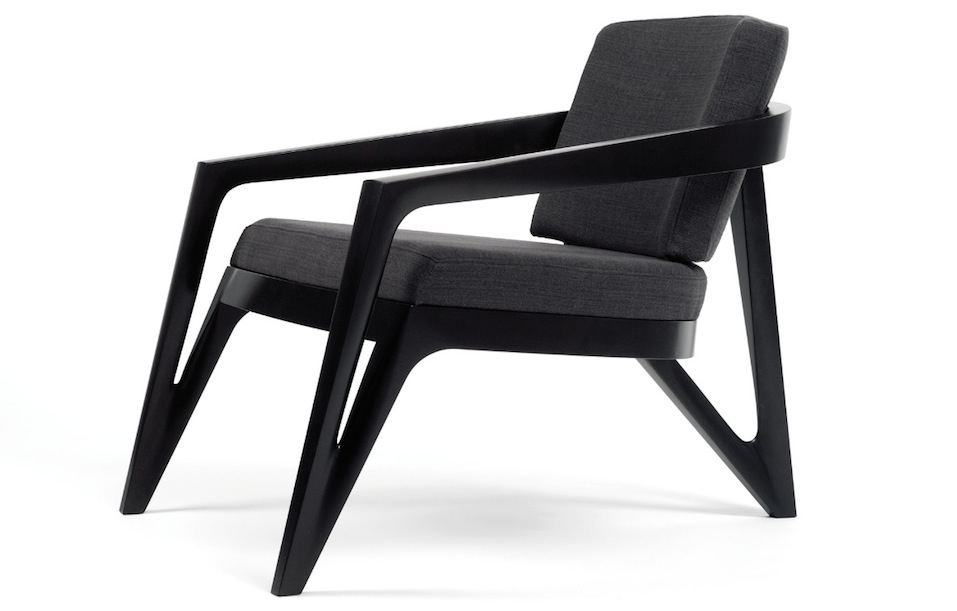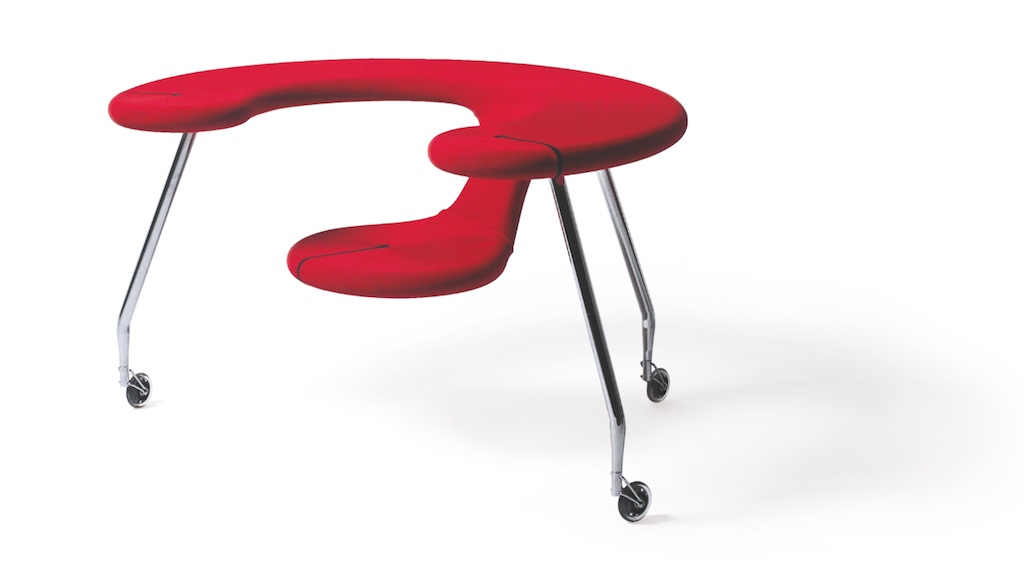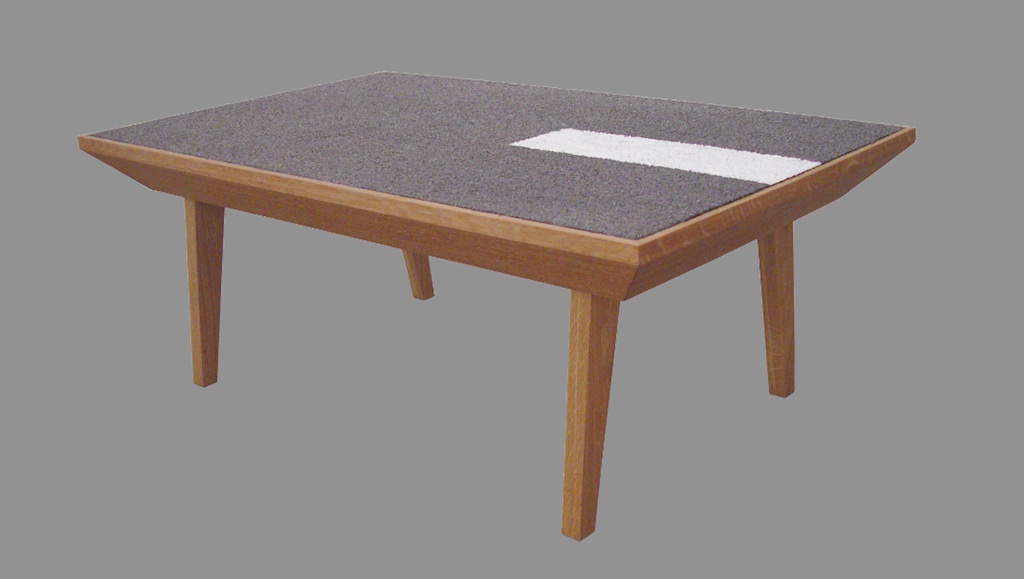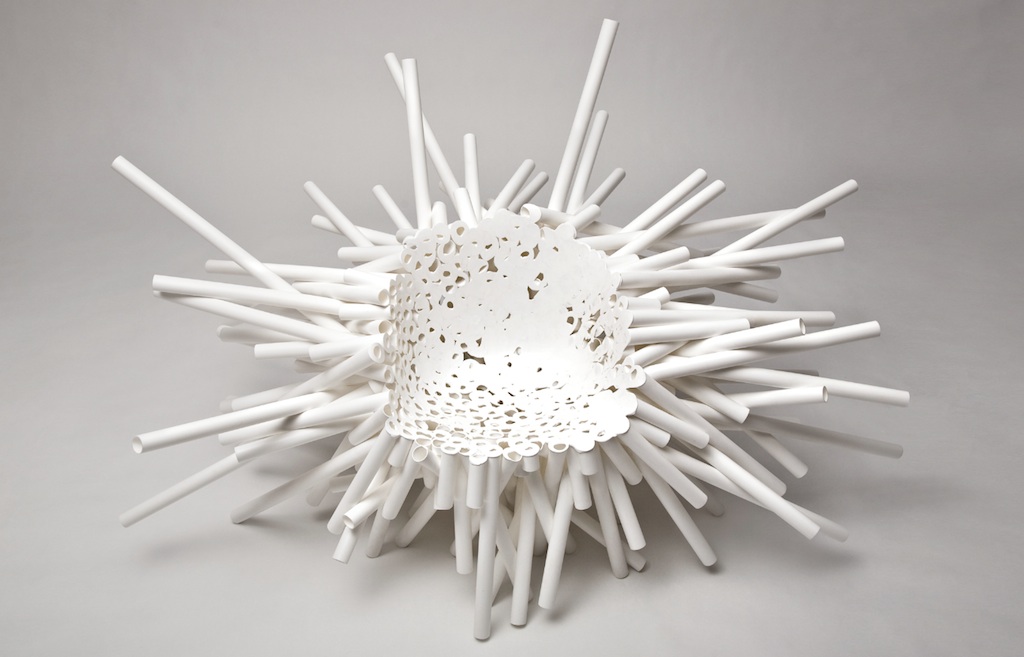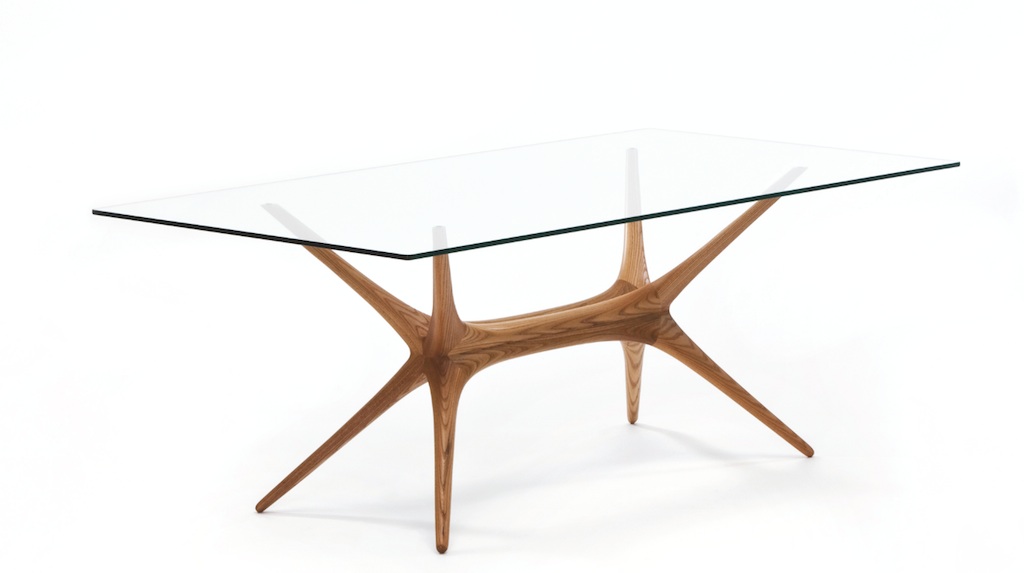One of the world’s most revered design meccas, Vitra Design Museum, located in Germany a short ride from Basel, Switzerland, attracts architecture and furniture aficionados from around the world for its jaw-dropping collection by designers such as Charles and Ray Eames, George Nelson, Alvar Aalto, Jean Prouvé, and numerous other modern masters of furniture flights of fancy.
If this summer doesn’t include a pilgrimage to the Vitra, then consider the next best thing: the monograph of modern furniture published by h.f.ullmann. The new trilingual, 720-page edition of Modern Furniture: 150 Years of Design is a sweeping retrospective of furniture design, ranging from an 1859 “bistro chair” to the latest design trends through 2011.
Organized in reverse chronological order, the five-pound tome is an encyclopedia of furniture pornography. Seductively photographed, the various chairs (as well as tables, chests, and other furniture fetishes) take on personalities as vivid as individuals – and particularly when aligned with brief texts (written in English, French, and German) that describe the composition and manufacturing process behind each anthropomorphic creation.
A coiled felt chair soaked in silicon from The Coiling Collection (2011) suggests an upholstered mushroom while a futurist “Hemp Chair” (2011) would fit in perfectly with “The Jetsons.” Eileen Gray’s Transat chair (1927), named for trans-Atlantic ocean crossings, evokes the romance of cruise liners in the days before commercial aviation.
In flipping through Modern Furniture: 150 Years of Design, design mavens and decor lovers might find themselves walking a fine line between temptation and torture. How to afford, for example, Tejo Remy’s “Chest of Drawers,” which Dutch design firm Droog has produced since 1993 and which has sold for five-figure sums at auctions around the world? (Is it a comfort to know that one of Remy’s “Chest of Drawers” resides in the permanent collection of New York’s Museum of Modern Art?)
And speaking of princely sums, what would one have to hock in order to obtain Josef Hoffman’s “Kubus” (1910), his cubic black leather chair, for one’s own office (or dungeon)?
The authors, Martin Wellner and Andrea Mehlhose (also known as Fremdkorpher), highlight the most significant developments in traditional furniture design while also featuring avant garde pieces.
For every piece by Aalto, Jacobsen, Panton, and Eames, there’s a lesser-known object such as Tom Dixon’s “S-Chair” (1989) looking like a sculpture by Brancusi. Or Alessandro Mendini’s “Proust” chair from 1978 looking as imposing as Gertrude Stein and every bit as lushly lapidary as Proust’s prose.
Essays on selected styles and themes, written by design experts, are interspersed throughout the book – as if to punctuate the lush photographs (and allow the reader pause from such covetous cravings).
Author Max Borka contributes a short history of design fairs, contending that “fairs are to design what museums are to art,” which goes a long way in explaining how it is that Marc Newsom’s “Lockheed Lounge Chair” sold by Christie’s at auction is the singular most expensive design object.
No tome on modern furniture would be complete without commentary on Philippe Starck, whom Karianne Fogelberg terms “agent provocateur” for Starck’s trademark provocation and “complete disregard for rules.” Perhaps as much as Arne Jacobsen during his lifetime, Starck has shaped our public spaces and the shapes into which we place our fannies.
And speaking of “The Jetsons,” George and Judy would’ve loved Michel Feith’s polished gold tea trolley (1984) created from soldered sheet brass and powered by an electrical drive that enables the trolley to speed across the room by remote control. Imagine this little toy at your summer share on the Island.
And what about a sofa called “Newtone” (1989), created by the former comic book illustrator, Massimo Iosa Ghini, whose absinthe and Kryptonite green divan suggests Madame Recamier, as well as Joey Arias and Jessica Rabbit.
Modern Furniture: 150 Years of Design is filled with playful pieces that remind you anew that your home is your crib (or playhouse or country club) – and that free will enables you to furnish it according to your fantasy.
And for the true collector with deep pockets, Modern Furniture: 150 Years of Design is nothing less than a bound wish list, populated with all the great work of the best masters of furniture design.
As a corollary to the adage, “You are what you eat,” Modern Furniture: 150 Years of Design posits the theory that in an increasingly design-obsessed world, who we are is where we sit.
Details:
Modern Furniture: 150 Years of Design
Author: Martin Wellner, Andrea Mehlhose, alias Fremdkorpher
Hardcover: 720 pages
Publisher: hf ULLMANN; Mul edition (April 27, 2012)
Language: English, French, German
ISBN-10: 384800030X
ISBN-13: 978-3848000302
Product Dimensions: 9.7 x 7.7 x 2 inches


